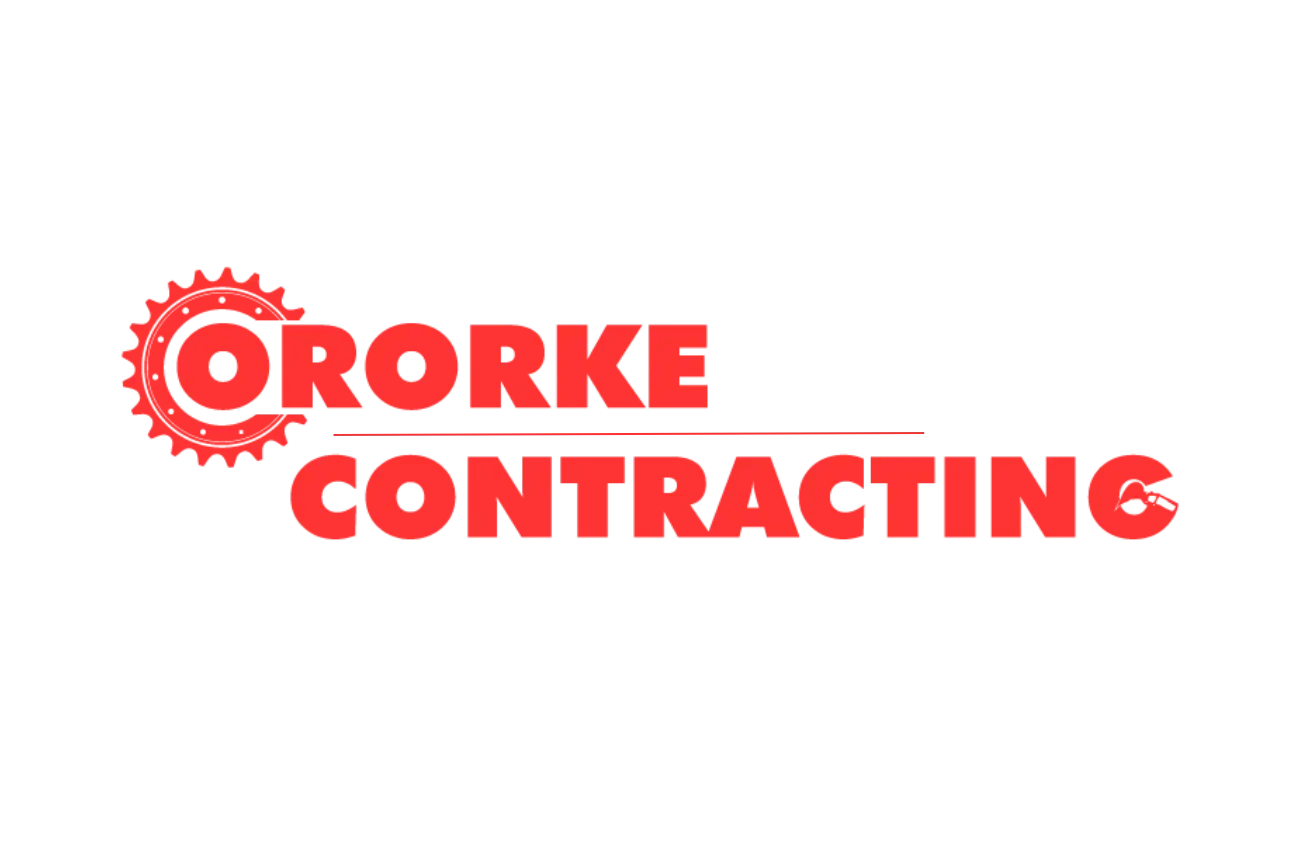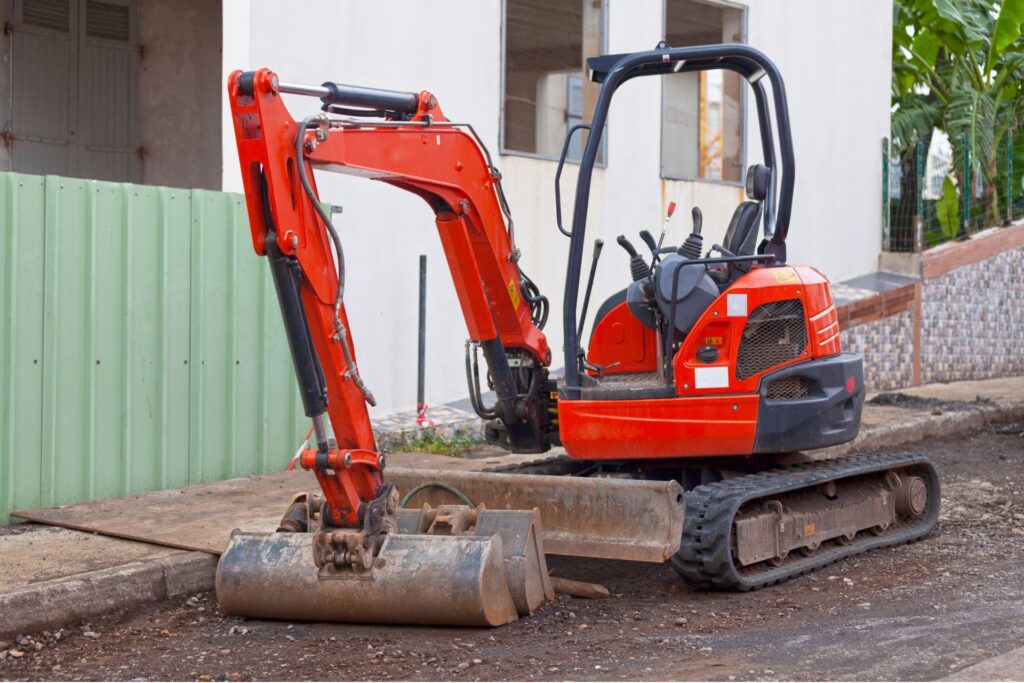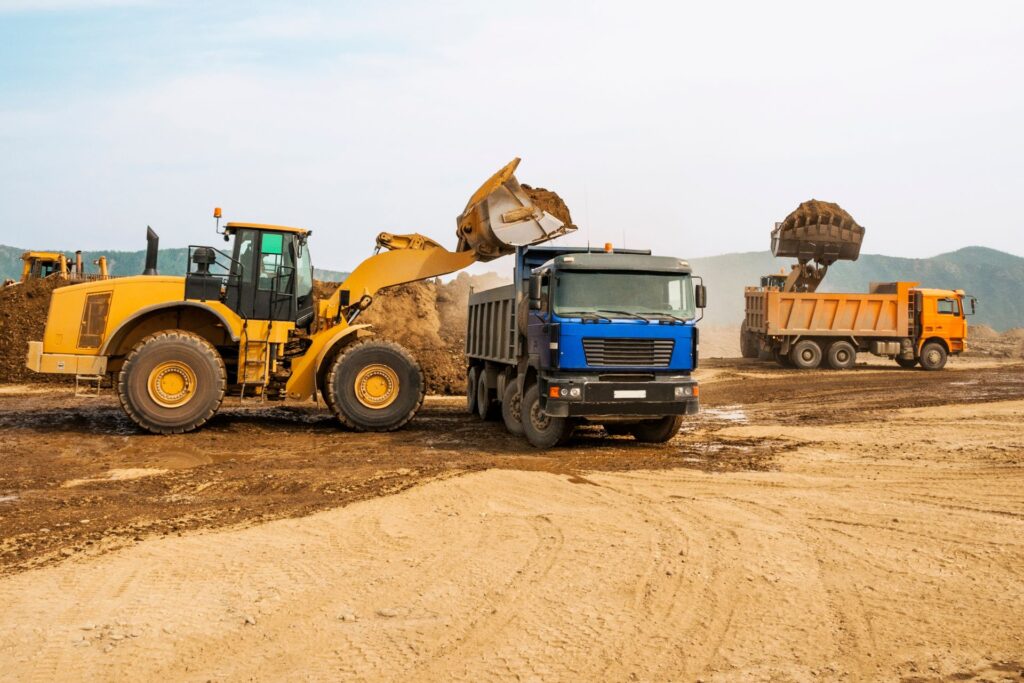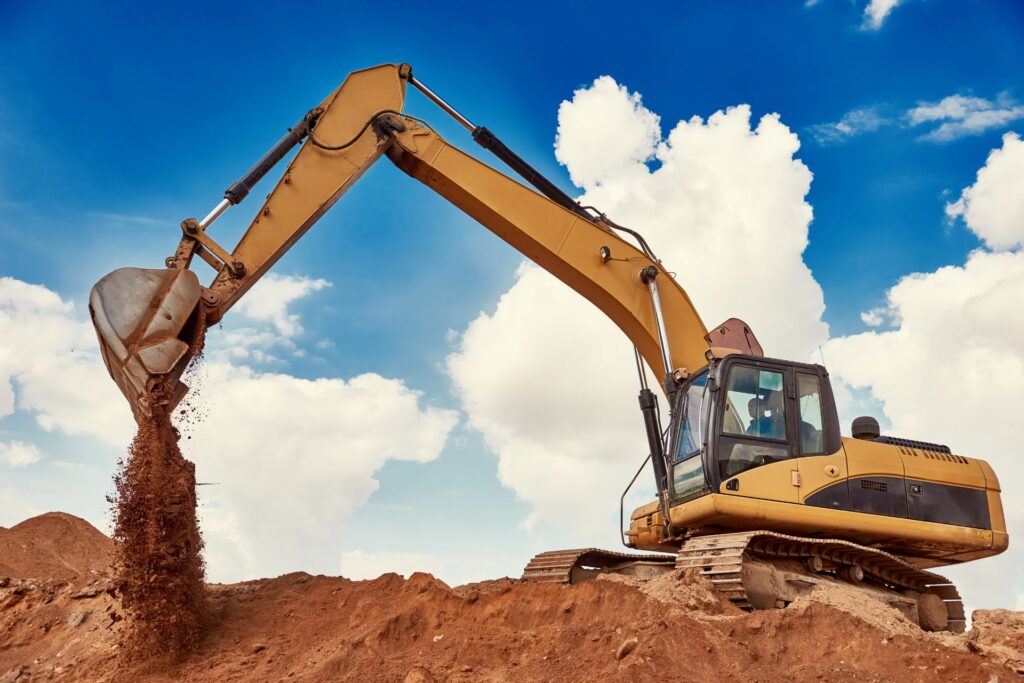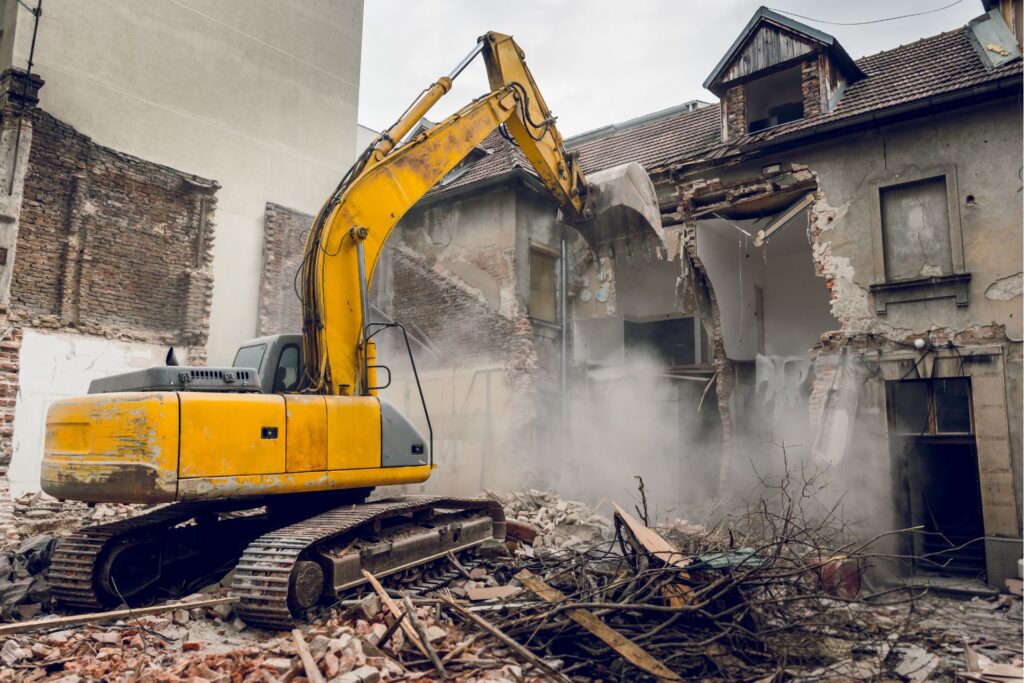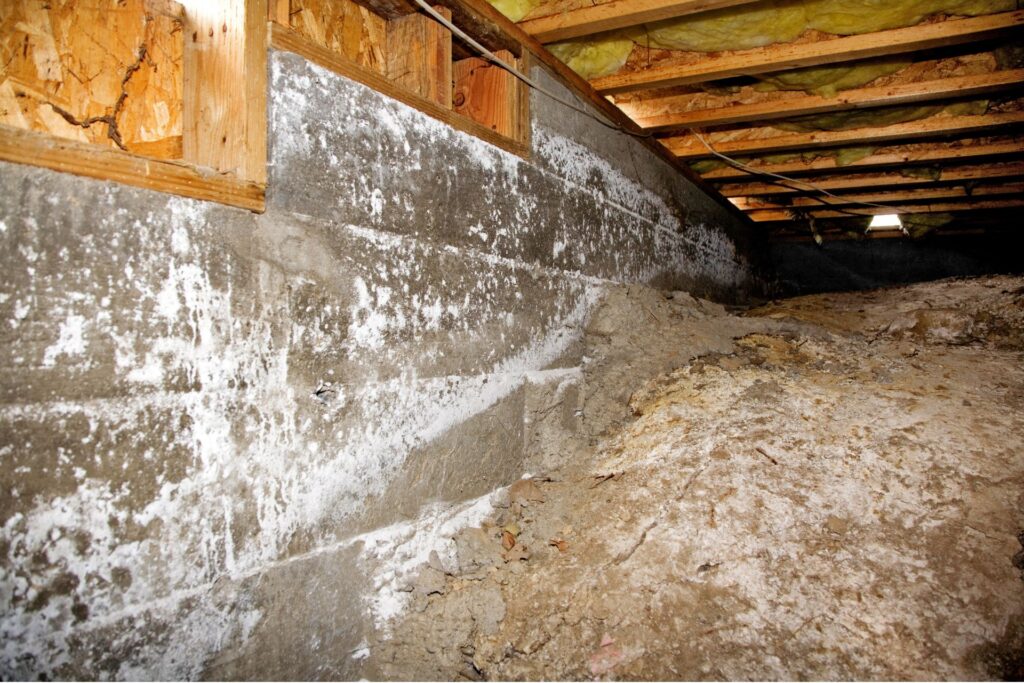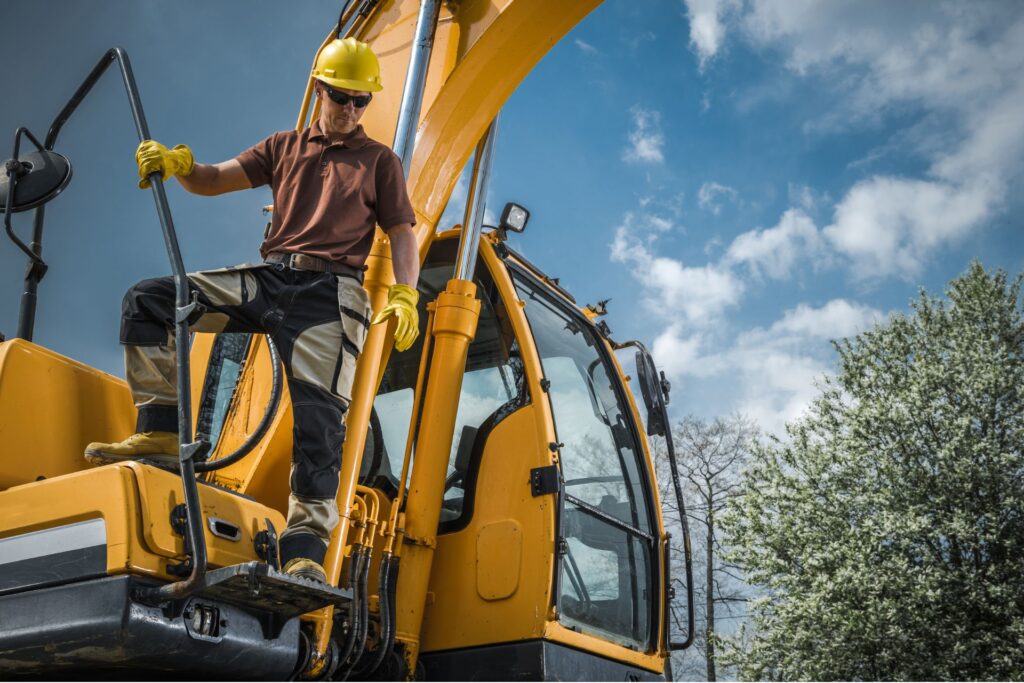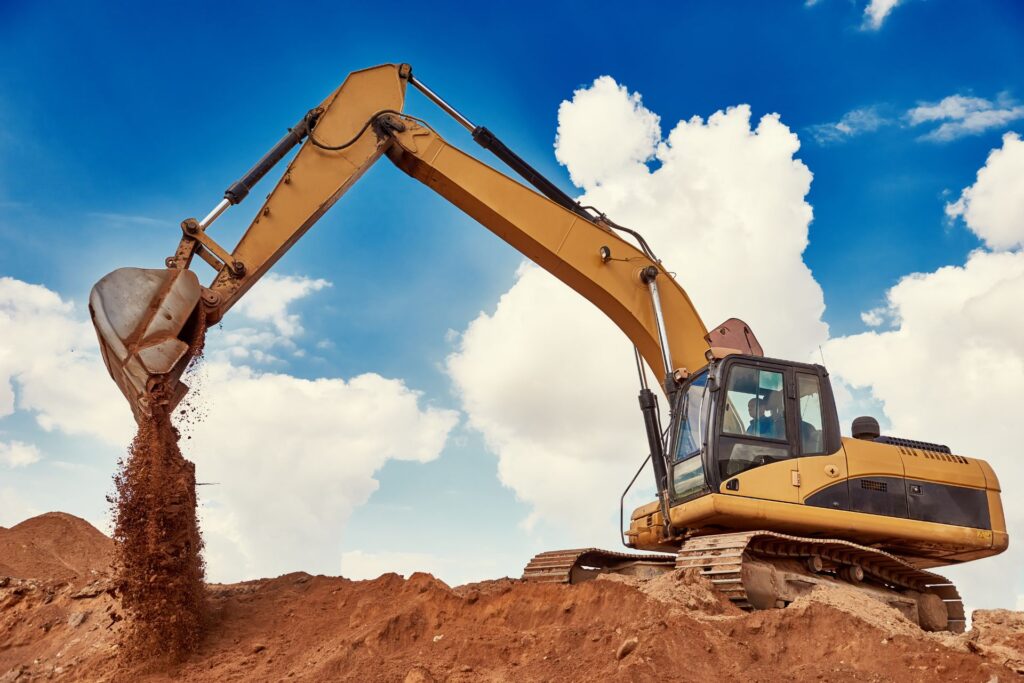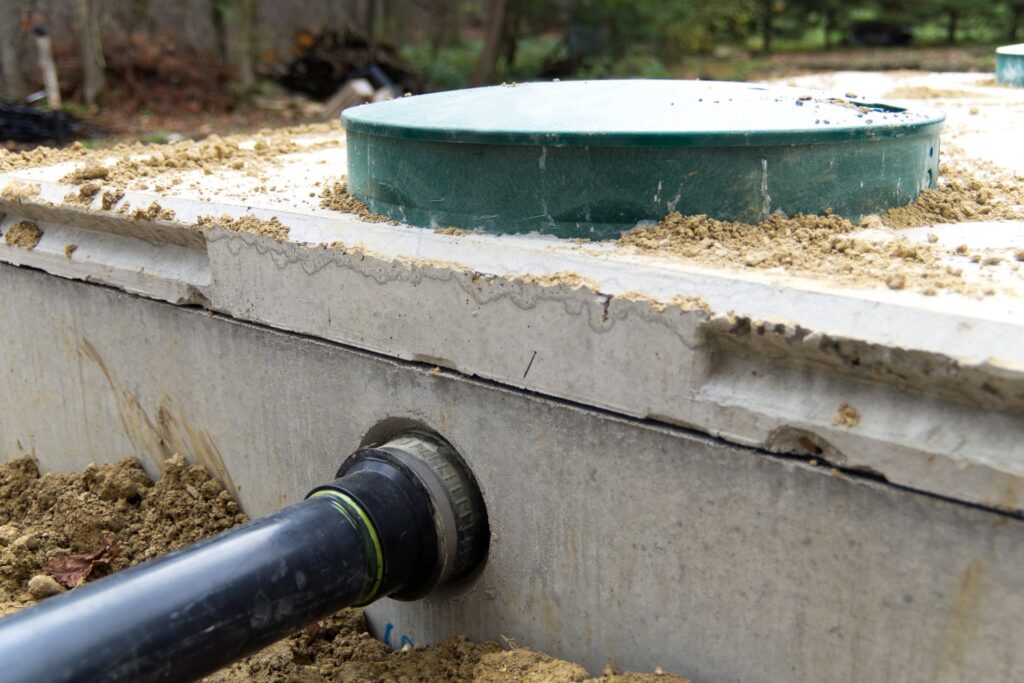Welcome to our comprehensive guide on understanding the hourly rate for hiring a mini excavator and operator in New Zealand. Whether you’re embarking on a landscaping project, a construction job, or any task that requires precise digging and earthmoving, knowing the costs involved is crucial for budgeting and planning. In this post, we’ll delve into the various factors that influence these rates, provide current market data, and offer practical tips to ensure you get the best value for your money. By the end, you’ll be well-equipped to make informed decisions about hiring a mini excavator and operator, helping you achieve efficiency and cost-effectiveness in your projects.
The hourly rate for hiring a mini excavator and operator in New Zealand typically ranges from NZD 90 to NZD 150, depending on factors such as the type of work, location, duration of hire, and the operator’s experience. Urban areas tend to have higher rates compared to rural locations. Additional costs may include travel, fuel, maintenance, and insurance. To get the best value, it’s advisable to compare multiple quotes, check operator qualifications, and negotiate rates.
- Understanding Mini Excavators
- Factors Influencing Hourly Rates
- Average Hourly Rates In New Zealand
- Additional Costs To Consider
- Hiring Tips For Best Value
- Benefits Of Hiring A Mini Excavator And Operator
- DIY Vs Professional Hire
- Future Trends In Mini Excavator Hiring
- FAQs: About Hourly Rate For Mini Excavator And Operator In NZ
- Conclusion
Understanding Mini Excavators
What is a Mini Excavator?
A mini excavator, also known as a compact excavator, is a small and versatile piece of machinery commonly used in construction, landscaping, and various other industries. These machines typically weigh between 1 to 10 tons, making them significantly smaller than standard excavators. Despite their size, mini excavators pack a punch in terms of functionality and efficiency.
Mini excavators are equipped with a boom, dipper (or stick), and a bucket, much like their larger counterparts. However, their compact size allows them to operate in confined spaces where larger machines cannot fit. They are often used for tasks such as digging trenches, demolishing small structures, leveling ground, and removing debris. In landscaping, mini excavators are ideal for tasks like planting trees, building retaining walls, and preparing garden beds.
Benefits of Using Mini Excavators
Mini excavators offer numerous advantages that make them a preferred choice for many projects. Here are some key benefits:
1. Versatility: Mini excavators are incredibly versatile machines. They come with a variety of attachments such as augers, breakers, and grapples, allowing them to perform a wide range of tasks. Whether it’s digging, trenching, grading, or demolition, mini excavators can handle it all.
2. Compact Size: One of the standout features of mini excavators is their compact size. This makes them perfect for projects in urban areas or sites with limited space. Their small footprint means they can navigate through narrow pathways and work in tight corners without causing damage to the surrounding area.
3. Efficiency: Despite their small size, mini excavators are highly efficient. They offer excellent digging power and speed, which can significantly reduce the time and labor required for a project. Their hydraulic systems are designed to maximize performance, making them capable of handling demanding tasks with ease.
4. Ease of Transport: Transporting heavy machinery can be a logistical challenge, but mini excavators are relatively easy to move. Their compact size and lighter weight mean they can be transported on a standard trailer, reducing transport costs and making it easier to move them from one job site to another.
5. Operator-Friendly: Mini excavators are designed with the operator in mind. They come with intuitive controls and comfortable cabs, making them easy to operate even for beginners. This user-friendly design helps reduce operator fatigue and increases overall productivity.
6. Cost-Effective: Renting or purchasing a mini excavator is often more cost-effective than investing in a full-sized excavator, especially for smaller projects. Their lower operating and maintenance costs make them a budget-friendly option for many contractors and businesses.
In conclusion, mini excavators are a valuable addition to any construction or landscaping project. Their versatility, compact size, efficiency, and ease of transport make them an excellent choice for a wide range of tasks. Whether you’re working on a large construction site or a small backyard project, a mini excavator can help you get the job done quickly and efficiently.

Factors Influencing Hourly Rates
When it comes to understanding the factors that influence hourly rates for construction and earthwork services, several key elements come into play. Knowing these can help you make informed decisions and potentially save on costs. Here’s a closer look at the primary factors:
Type of Work
The nature of the job significantly affects the hourly rates. For instance, tasks like digging and trenching might be more straightforward and thus less expensive. However, more complex tasks such as demolition or intricate landscaping can demand higher rates due to the specialized skills and equipment required. The complexity and risk associated with the job often dictate the pricing, with more challenging work naturally costing more.
Location
Geographical location is another crucial factor. Hourly rates can vary widely across different regions in New Zealand. Urban areas like Auckland or Wellington might have higher rates compared to rural regions due to the higher cost of living and increased demand for services. Additionally, remote locations might incur extra charges for travel and transportation of equipment, further influencing the overall cost.
Duration of Hire
The length of time you require the services can also impact the pricing. Generally, short-term hires tend to have higher hourly rates compared to long-term engagements. Contractors often offer discounted rates for longer projects as it provides them with a steady flow of work. Conversely, one-off or very short-term projects might not be as cost-effective due to the higher rates applied for such durations.
Operator Experience
The level of experience and expertise of the operator is another key factor. Hiring a highly skilled operator might come at a premium, but it can be worth the investment due to their efficiency and the quality of work delivered. Experienced operators are likely to complete tasks faster and with fewer mistakes, potentially saving you money in the long run. On the other hand, hiring a less experienced operator might reduce the hourly rate but could increase the total cost due to slower progress or potential errors that need rectifying.
In summary, when planning for construction or earthwork services, considering these factors can help you understand and manage the costs better. By evaluating the type of work, location, duration of hire, and the operator’s experience, you can make more informed decisions that align with your budget and project requirements.
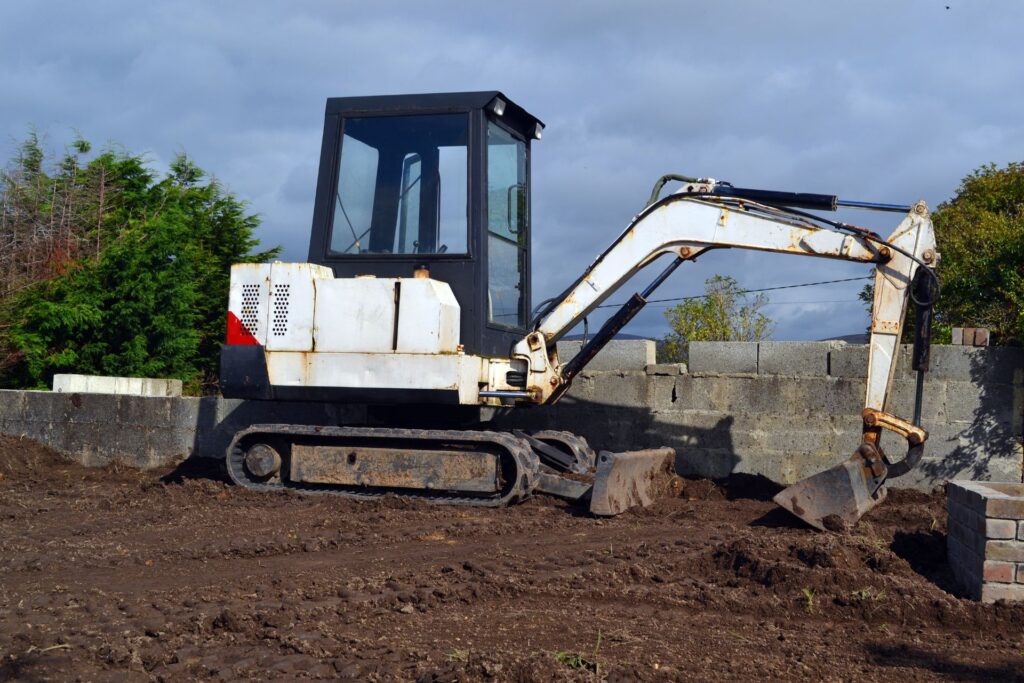
Average Hourly Rates In New Zealand
Current Market Rates
When exploring the average hourly rates in New Zealand, it’s essential to consider recent market data to provide an accurate picture. The rates can vary significantly based on the profession, location, and experience level. Generally, as of the latest data, the average hourly rate in New Zealand ranges from NZD 20 to NZD 50 for various trades and services.
For example, entry-level positions or jobs in the hospitality industry might start at around NZD 20 per hour. On the other hand, skilled tradespeople such as electricians, plumbers, and carpenters often charge between NZD 30 to NZD 50 per hour. Specialized professionals like engineers or consultants can command rates exceeding NZD 60 per hour, reflecting their expertise and the complexity of their work.
It’s important to note that these figures are averages, and the actual rates can differ based on several factors, including demand, the individual’s skill level, and the specific requirements of the job.
Comparative Analysis
A comparative analysis of hourly rates between urban and rural areas reveals notable differences. Urban centers like Auckland, Wellington, and Christchurch typically have higher rates due to the higher cost of living and increased demand for services. In these cities, the hourly rates for tradespeople and professionals can be at the higher end of the spectrum, often exceeding NZD 50 per hour for experienced individuals.
Conversely, in rural areas or smaller towns, the rates tend to be lower. This can be attributed to the lower cost of living and reduced demand. For instance, a plumber in a rural town might charge around NZD 30 per hour, whereas the same service in Auckland could cost NZD 50 or more per hour. These differences highlight the impact of location on service costs and emphasize the need for consumers to consider geographic factors when budgeting for services.
Case Studies
To provide a clearer picture of how these rates play out in real life, let’s look at a couple of case studies:
Case Study 1: Urban Scenario
Jane is a homeowner in Wellington looking to renovate her kitchen. She hires an experienced electrician to rewire the space, a job estimated to take 20 hours. The electrician’s rate in Wellington is NZD 45 per hour. Consequently, the total cost for the electrical work amounts to NZD 900. Additionally, Jane hires a plumber at NZD 40 per hour for 15 hours of work, totaling NZD 600. The combined cost for these services in an urban setting like Wellington is NZD 1,500.
Case Study 2: Rural Scenario
Mike owns a farmhouse in a small town in the South Island. He needs similar electrical and plumbing work done. The electrician in his area charges NZD 30 per hour, and the plumber charges NZD 25 per hour. For the same amount of work—20 hours for the electrician and 15 hours for the plumber—Mike pays NZD 600 for electrical work and NZD 375 for plumbing. The total cost in this rural setting is NZD 975, significantly lower than in an urban environment.
These case studies illustrate how location can influence service costs, with urban areas typically demanding higher rates compared to rural locations. Understanding these variations helps consumers and professionals alike to navigate the market effectively and make informed decisions about service engagements.
By considering current market rates, comparative analysis, and real-life case studies, one can gain a comprehensive understanding of the average hourly rates in New Zealand, enabling better financial planning and resource allocation.

Additional Costs To Consider
When planning to hire a mini excavator, it’s crucial to consider several additional costs beyond the basic rental fee. These extra expenses can significantly impact your overall budget and should be factored into your planning to avoid any unexpected surprises.
Travel and Transport Fees
One of the first additional costs to consider is travel and transport fees. Moving a mini excavator to and from your site requires specialized equipment and vehicles, which can incur significant costs. This fee often depends on the distance between the rental company’s location and your project site. It’s wise to ask for a detailed breakdown of these charges when obtaining quotes to ensure you’re not caught off guard by hidden fees.
Fuel and Maintenance
Operating a mini excavator isn’t just about getting it to the site; you also need to consider the ongoing costs of fuel and maintenance. Fuel consumption can vary depending on the type of work and the duration of use. Additionally, rental companies may pass on maintenance costs to the hirer, especially for longer rental periods. These costs can include routine checks, repairs, and general wear and tear. To manage these expenses, it’s beneficial to discuss fuel efficiency and maintenance expectations with the rental provider.
Insurance
Insurance is another essential factor. Depending on the rental agreement, you might be required to have liability and equipment insurance. Liability insurance covers any damage that the excavator might cause to property or third parties during its operation. Equipment insurance, on the other hand, covers damage to the excavator itself. It’s important to clarify whether these insurances are included in the rental price or if they will be an additional cost. Ensuring you have the appropriate coverage can prevent hefty out-of-pocket expenses in the event of an accident.
Permits and Regulations
Lastly, consider any necessary permits and compliance with local regulations. Depending on the nature and location of your project, you may need specific permits to operate heavy machinery like a mini excavator. These permits can come with their own set of fees and paperwork. Additionally, adhering to local regulations ensures that your project proceeds without legal interruptions. It’s advisable to check with local authorities and your rental company about the required permits and regulations for your project to ensure full compliance.
By taking these additional costs into account, you can create a more accurate and comprehensive budget for your mini excavator rental, ensuring a smoother and more efficient project execution.

Hiring Tips For Best Value
When it comes to getting the best value for your money, especially in services like construction, renovation, or even hiring a service provider, a strategic approach is essential. Here’s a detailed breakdown of how you can ensure you get the best value through diligent hiring practices.
Research and Compare Providers
One of the most crucial steps in hiring the right service provider is thorough research and comparison. Here’s why it matters and how to go about it effectively:
Importance of Getting Multiple Quotes and Checking Reviews
Getting multiple quotes allows you to understand the market rate for the services you need. It helps you avoid overpaying and ensures you’re not settling for subpar services. When you gather quotes from different providers, pay attention not only to the price but also to what each quote includes. Some might offer additional services or benefits that could be valuable.
Equally important is checking reviews. Online reviews can provide insights into a provider’s reliability, quality of work, and customer service. Look for reviews on multiple platforms to get a well-rounded view. Remember, a provider with consistently positive reviews across various sites is more likely to deliver satisfactory results.
Assessing Operator Qualifications
Before you finalize any service provider, assessing their qualifications is essential. Here are some key points to consider:
Ensuring the Operator Has the Necessary Certifications and Experience
Certifications and licenses are a testament to a provider’s credibility and expertise. Make sure the operator holds all necessary certifications relevant to their field. For instance, in construction, certifications might include safety training, specific technical skills, or industry-standard qualifications.
Experience, on the other hand, is equally vital. An experienced operator is likely to have encountered and solved various challenges, ensuring a smoother process for your project. Don’t hesitate to ask about their past projects, how long they’ve been in the industry and any specific expertise that aligns with your needs.
Negotiating Rates
Negotiation is an art that can lead to significant savings or added value. Here’s how to do it effectively:
Tips on How to Negotiate for Better Rates or Additional Services
Start by understanding the standard rates in the industry for the services you need. This knowledge empowers you to negotiate from an informed position. When discussing rates, be clear about your budget and ask if there’s any flexibility.
Highlight your willingness to consider a long-term relationship or future projects, which might incentivize the provider to offer better rates. Additionally, inquire about any promotions or discounts they might have. Sometimes, bundling services can lead to cost savings or additional benefits at the same rate.
Contract Considerations
A well-drafted contract is your best safeguard against misunderstandings and disputes. Here’s what to focus on:
Key Points to Include in the Hire Contract to Avoid Misunderstandings
The contract should clearly outline the scope of work, deadlines, payment terms, and any other specifics of the job. This clarity ensures both parties are on the same page from the start.
Include detailed descriptions of the services to be provided, the materials to be used (if applicable), and any warranties or guarantees. It’s also wise to specify procedures for handling any changes to the project scope or unexpected issues.
Furthermore, make sure the contract includes a section on dispute resolution, outlining how any disagreements will be handled. This might involve mediation or arbitration before escalating to legal action, saving time and money in potential disputes.
By following these hiring tips, you can significantly enhance the value you receive, ensuring your project is completed to a high standard, on time, and within budget. Remember, the effort you put into researching, comparing, negotiating, and clearly outlining terms in a contract can make a substantial difference in the overall outcome.

Benefits Of Hiring A Mini Excavator And Operator
Efficiency and Productivity
When it comes to construction and landscaping projects, time is money. Hiring a mini excavator and operator can significantly enhance the efficiency and productivity of your project. These compact yet powerful machines can perform a variety of tasks quickly and accurately, from digging trenches to grading and backfilling. Unlike manual labor, which can be slow and physically exhausting, a mini excavator can accomplish these tasks in a fraction of the time. This speed not only accelerates project timelines but also allows for the completion of multiple projects in a shorter period, thereby boosting overall productivity.
Furthermore, a skilled operator brings expertise and precision to the job. An experienced operator knows how to maneuver the excavator in tight spaces and around obstacles, ensuring that the work is done right the first time. This precision reduces the likelihood of errors and rework, which can be costly and time-consuming. By streamlining operations and minimizing downtime, a mini excavator and operator can keep your project on schedule and within budget.
Safety
Safety is paramount on any job site, and hiring a mini excavator and operator can greatly enhance the safety of your workers and the overall site. Mini excavators are designed with modern safety features, such as rollover protection systems (ROPS) and advanced hydraulic systems, which contribute to a safer working environment. These features help prevent accidents and injuries, protecting both the operator and other workers on the site.
Additionally, a trained and certified operator is well-versed in safe operating practices. They understand the importance of proper machine maintenance, safe maneuvering techniques, and adherence to safety regulations. This knowledge and experience help to mitigate risks and ensure that the equipment is used correctly and safely. By reducing the potential for accidents, you can maintain a safer job site, which can lead to lower insurance premiums and fewer work-related disruptions.
Cost-Effectiveness
While hiring a mini excavator and operator might seem like an added expense, it can actually lead to substantial long-term savings. The efficiency and speed of a mini excavator mean that projects are completed faster, reducing labor costs and minimizing the duration of rental equipment. This efficiency translates to fewer billable hours and less money spent on labor.
Moreover, the precision and expertise of a professional operator can prevent costly mistakes. Errors in excavation and grading can lead to significant expenses for corrections and repairs. By ensuring that the job is done right the first time, you avoid these additional costs. Furthermore, a well-maintained mini excavator operated by a professional is less likely to break down, reducing downtime and maintenance expenses.
Investing in a mini excavator and operator can also be more economical than purchasing and maintaining your own equipment. Ownership comes with costs such as maintenance, storage, and depreciation. By hiring, you eliminate these expenses and only pay for the equipment and operator when you need them. This flexibility allows for better budget management and allocation of resources to other critical areas of your project.
In conclusion, hiring a mini excavator and operator offers numerous benefits, including enhanced efficiency and productivity, improved safety, and cost-effectiveness. By leveraging these advantages, you can ensure that your project is completed on time, within budget, and to the highest standards of quality and safety.

DIY Vs Professional Hire
When it comes to taking on a construction or renovation project, one of the biggest decisions you’ll face is whether to do it yourself (DIY) or hire a professional. Both options have their pros and cons, and the best choice depends on the specifics of your project. Let’s dive into the key considerations to help you make an informed decision.
When to Consider DIY
There are certain situations where a DIY approach can be a practical and cost-effective choice. If the project is relatively simple and doesn’t require specialized skills, you might be able to handle it yourself with the right equipment. Here are some scenarios where DIY might be feasible:
Small-scale projects: Tasks like painting a room, installing a simple garden fence, or laying down some patio pavers can often be managed by enthusiastic DIYers.
Budget constraints: If your budget is tight, doing the work yourself can save you money on labor costs. Just remember to factor in the cost of equipment and materials.
Learning opportunities: Taking on a DIY project can be a great way to learn new skills and gain hands-on experience. It’s a satisfying feeling to complete a project with your own two hands.
However, even if you decide to go the DIY route, there are some risks to be aware of.
Risks of DIY
While DIY can be rewarding, it also comes with its own set of challenges and potential pitfalls. Here are some of the risks associated with taking on a project yourself:
Lack of expertise: Professional contractors have years of experience and training. Without that expertise, you might make mistakes that could end up costing more to fix than hiring a professional in the first place.
Safety concerns: Many construction and renovation tasks involve potentially dangerous tools and materials. Without proper training and safety measures, you could be putting yourself at risk of injury.
Time commitment: DIY projects often take longer than expected, especially if you’re learning as you go. If you have a tight timeline, this could be a major drawback.
Quality of work: Professionals have the skills and knowledge to deliver high-quality results. If you’re not experienced, the finished product might not meet your expectations or could require redoing.
Considering these risks, there are many advantages to opting for a professional hire.
Benefits of Professional Hire
Hiring a professional can bring numerous benefits to your project, ensuring that it is completed efficiently and to a high standard. Here are some of the key advantages:
Expertise and experience: Professionals bring a wealth of knowledge and skills to the table. They know the best practices and have the technical know-how to handle complex tasks with ease.
Safety and compliance: Licensed contractors are familiar with building codes and safety regulations. They can ensure that your project is compliant with local laws and standards, reducing the risk of costly legal issues.
Efficiency and time-saving: With the right tools and a professional team, your project will likely be completed much faster than if you were to do it yourself. This means less disruption to your daily life.
Quality assurance: Professionals take pride in their work and aim to deliver high-quality results. They have access to the best materials and tools, ensuring a durable and aesthetically pleasing finish.
Peace of mind: Hiring a professional reduces stress and allows you to focus on other important aspects of your life. You can rest assured knowing that your project is in capable hands.
Choosing between DIY and professional hire depends on various factors, including the complexity of the project, your budget, and your personal skills and experience. While DIY can be a great option for smaller, simpler projects, hiring a professional is often the safer and more efficient choice for larger, more complex tasks. By weighing the risks and benefits, you can make an informed decision that will lead to the best possible outcome for your project.
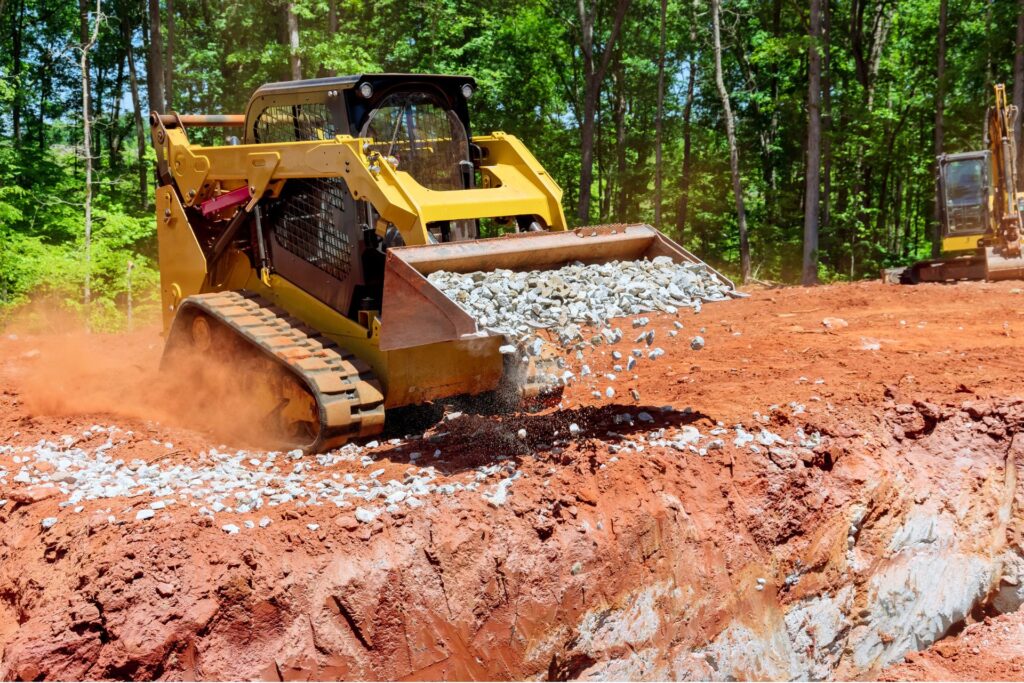
Future Trends In Mini Excavator Hiring
As we look toward the future, the landscape of mini excavator hiring is poised for significant changes driven by technological advancements and evolving market trends. These shifts are set to impact not only the availability and functionality of mini excavators but also the rates and demand for operators. Let’s dive into these anticipated trends in detail.
Technological Advancements
Technological innovations are transforming various industries, and the construction sector is no exception. Mini excavators, integral to many construction projects, are experiencing a surge in advanced technologies that promise to enhance their efficiency, safety, and overall performance. Here are some key technological advancements to watch out for:
1. Automation and Robotics: One of the most significant trends is the integration of automation and robotics in mini excavators. These technologies enable semi-autonomous and fully autonomous operations, reducing the need for constant human intervention. This can lead to improved precision in tasks such as digging, grading, and material handling, ultimately increasing productivity and reducing labor costs.
2. Telematics and IoT: The incorporation of telematics and the Internet of Things (IoT) allows for real-time monitoring of mini excavator performance, location, and maintenance needs. This data-driven approach helps operators and fleet managers optimize machine usage, predict maintenance issues before they become critical, and ensure the efficient allocation of resources. Such advancements can also enhance safety by providing alerts and diagnostics that prevent accidents.
3. Electric and Hybrid Models: With growing environmental concerns and stricter emissions regulations, the development of electric and hybrid mini excavators is gaining momentum. These models offer reduced emissions, lower noise levels, and potential cost savings on fuel. As the technology matures and becomes more widely adopted, it could lead to a shift in hiring preferences toward more sustainable options.
4. Advanced Control Systems: Modern mini excavators are being equipped with sophisticated control systems that provide greater precision and ease of use. Features like touchscreen interfaces, joystick controls, and customizable operating settings enable operators to perform complex tasks with higher accuracy and efficiency. These advancements can also reduce operator fatigue and training time.
Market Trends
In addition to technological advancements, several market trends are expected to influence the demand for mini excavators and their operators in New Zealand. Understanding these trends can help businesses and contractors make informed decisions about their equipment needs.
1. Increasing Construction Activity: New Zealand is witnessing a surge in construction projects, driven by urban development, infrastructure upgrades, and residential construction. This growth is likely to boost the demand for mini excavators, which are essential for tasks in confined spaces and urban environments where larger machinery is impractical.
2. Rental Market Expansion: The trend of renting over buying construction equipment continues to grow. Renting offers flexibility, cost savings, and access to the latest technology without the long-term commitment of ownership. As a result, the mini excavator rental market is expected to expand, providing more options and competitive rates for contractors.
3. Skilled Labor Shortages: The construction industry is facing a shortage of skilled operators, which can impact project timelines and costs. To address this, there is a growing emphasis on training programs and certifications for mini excavator operators. Enhanced training can improve operator proficiency and safety, making it easier for contractors to find qualified personnel.
4. Sustainability Initiatives: As mentioned earlier, environmental concerns are driving the adoption of eco-friendly construction practices. This includes a preference for equipment that reduces carbon footprints and complies with emissions standards. The push for sustainability is likely to influence hiring trends, with a growing demand for electric and hybrid mini excavators.
5. Economic Factors: Economic conditions, including interest rates, government policies, and infrastructure funding, play a crucial role in shaping the construction industry. Positive economic indicators can stimulate investment in construction projects, increasing the demand for mini excavators. Conversely, economic downturns might lead to reduced activity and demand.
In conclusion, the future of mini excavator hiring in New Zealand is set to be shaped by significant technological advancements and evolving market trends. Automation, telematics, and sustainable models are leading the way in transforming how mini excavators are used and maintained. Simultaneously, increased construction activity, rental market growth, and the need for skilled operators will drive demand. Staying abreast of these trends can help businesses and contractors navigate the changing landscape and make strategic decisions for their equipment needs.
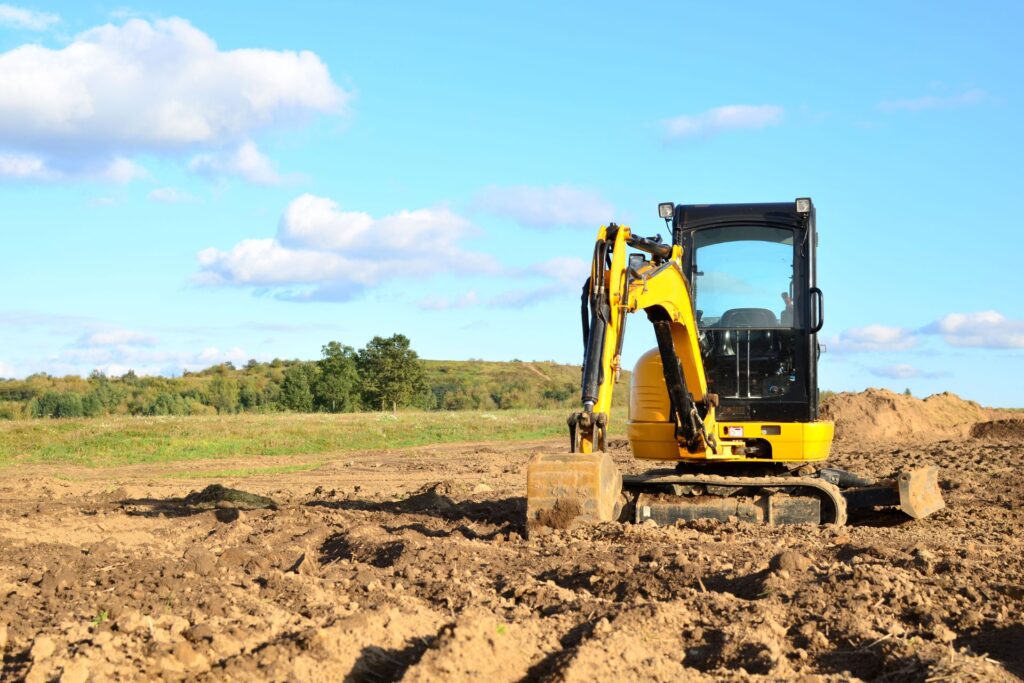
FAQs: About Hourly Rate For Mini Excavator And Operator In NZ
Conclusion
In conclusion, this blog has thoroughly explored the essential aspects of hiring mini excavators and operators, highlighting critical points such as evaluating project requirements, understanding cost factors, and assessing the benefits of professional expertise. It’s crucial to remember that making well-informed decisions in this process can significantly impact the success and efficiency of your construction projects. As you move forward, consider reaching out for detailed quotes, conducting further research, or seeking professional advice to ensure you choose the best options tailored to your specific needs. Taking these steps will help you navigate the complexities of hiring mini excavators and operators with confidence and clarity.
About the Author:
Mike Veail is a recognized digital marketing expert with over 6 years of experience in helping tradespeople and small businesses thrive online. A former quantity surveyor, Mike combines deep industry knowledge with hands-on expertise in SEO and Google Ads. His marketing strategies are tailored to the specific needs of the trades sector, helping businesses increase visibility and generate more leads through proven, ethical methods.
Mike has successfully partnered with numerous companies, establishing a track record of delivering measurable results. His work has been featured across various platforms that showcase his expertise in lead generation and online marketing for the trades sector.
Learn more about Mike's experience and services at https://theleadguy.online or follow him on social media:
